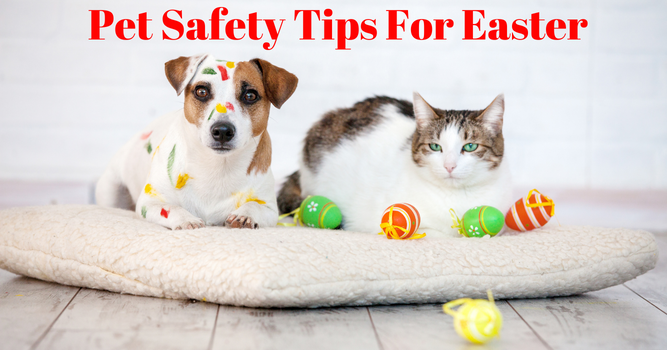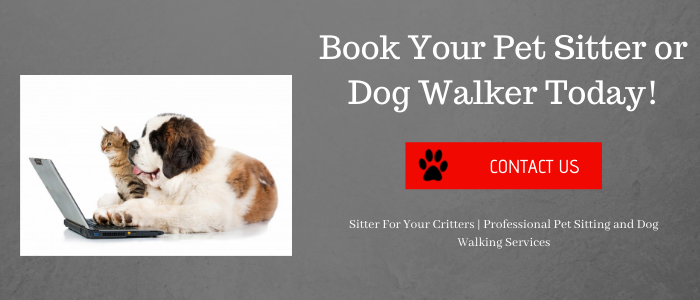Pet Safety Tips For Easter

Easter is a time for family, fun, and, of course, chocolate bunnies! However, for pet owners, it’s important to be aware of the potential dangers that the holiday can pose to their furry friends. To help ensure that your pets have a safe and happy Easter, here are some important safety tips to keep in mind.
Candy
Dogs especially will be on the hunt for extra treats this time of year. If your dogs are anything like mine they can smell chocolate being opened a mile away. Beware of chocolate which contains theobromine, a substance that can be toxic to dogs and cats if ingested in large quantities. Symptoms of chocolate poisoning can include vomiting, diarrhea, rapid breathing, and even death.
To keep your pets safe, be sure to keep chocolate and any other sweets out of their reach. It’s easy to set down your chocolate egg, forget about it and walk away.
Easter decorations
Easter decorations, such as Easter eggs, plastic grass, and baskets, can pose a choking hazard to pets if ingested. Easter grass can make an Easter basket beautiful, but dogs and cats love to chew on it. Easter grass is dangerous if your pets ingest it. I like to use tissue paper or shredded, recycled paper instead.
It’s important to make sure all ribbon, string, and anything else your pets could pick up and chew and maybe choke on are put away out of their reach. Scissors might look like a great chew toy to your pet but can cause a lot of damage to a dog.
We all know cats love to play with string or ribbon, but it’s important that you supervise this and don’t leave it for them to choke on.
Dangerous Plants
Easter Lillies and other plants such as daffodils and hyacinths can be in a lot of houses over the holiday season. These plants are very poisonous to animals so remember to keep them out of reach and remember cats can jump up onto counters, so it’s best to keep them in rooms that they won’t have access to.

Easter Egg Hunt
Remember to keep pets away from Easter egg dyes. Some of the dyes used to color Easter eggs can be toxic to pets if ingested. Remember where you’ve hidden the hardboiled or plastic candy-filled eggs and how many you’ve hidden. Don’t let your dog uncover an egg that wasn’t found during the egg hunt. If your dog finds an egg later and eats it, it could make him ill. If your dog finds a plastic egg and chews on that it could injure his mouth and if there is chocolate inside the egg, he can get sick.
Bunnies/Chicks/Ducks as Pets
Parents might think it fun to give bunnies or chicks as gifts, especially as their children are stuck at home for the long term, but these animals require special feeding and care. Sadly, most families are unprepared for the responsibility of owning these vulnerable animals, and unintentionally, many of the baby bunnies, chicks, and ducks that become Easter gifts die within a few weeks. Those that do survive the first few post-holiday weeks are often given to animal control or a local animal shelter once the novelty of their presence wears off. Go for a cute stuffed animal instead!
Easter can be a fun and exciting time for families, but it’s important to be aware of the potential dangers that it can pose to pets. By following these important safety tips, you can help ensure that your pets have a safe and happy Easter, surrounded by love and joy.
